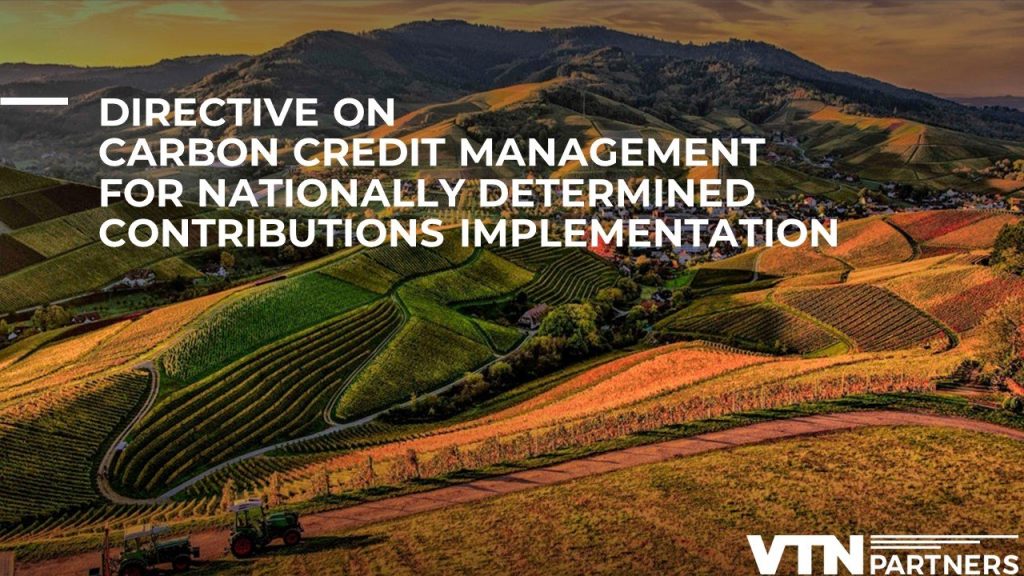Directive No. 13/CT-TTg, recently issued by the Prime Minister on May 02, 2024, aims to strengthen carbon credit management to fulfill Nationally Determined Contributions (NDC). Vietnam has revised its NDC to uphold international commitments for emissions reduction, aligning with goals outlined in COP26. Implementing NDC obligations falls under nations’ responsibilities to comply with climate agreements, covering emissions reduction targets across sectors like energy, agriculture, forestry, waste management, and industry. Achieving emission reduction targets by 2030 and net-zero emissions by 2050 requires developing and implementing greenhouse gas reduction strategies, alongside establishing carbon markets and credit management mechanisms.
Carbon credit management involves establishing regulations for credit generation, exchange, trading, and offsetting emissions quotas, forming the basis for domestic market development and global participation. Management must ensure national emission reduction targets are met while balancing state, business, individual, and partner interests. To strengthen carbon credit management, foster market development, ensure NDC implementation, and provide accurate information, the Prime Minister’s directive includes specific requests:
- Ministries of Industry and Trade, Transport, Construction, Agriculture and Rural Development, and Natural Resources and Environment:
- Issue sector-specific plans to reduce greenhouse gas emissions as per Government Decree No. 06/2022/NĐ-CP by Q3 2024.
- Lead negotiations and agreements with international partners on carbon credit transfer to meet NDC targets.
- Disseminate information on emission reduction targets, NDC implementation, and carbon credit generation methods.
- Ministry of Natural Resources and Environment:
- Study establishing a national carbon credit registration system and develop amended decrees for carbon credit management.
- Coordinate with ministries and agencies to develop regulations on carbon credit trading activities.
- Ministry of Agriculture and Rural Development:
- Establish a database on forest carbon sequestration potential and develop national standards for forest carbon credits.
- Identify and develop pilot policies for forest carbon credit exchange activities with international partners.
- Ministry of Industry and Trade:
- Review legal frameworks and international experiences in managing Renewable Energy Certificates (REC) linked to emission reduction targets.
- Ministry of Finance:
- Finalize the Project for Carbon Market Development in Vietnam and assess international experiences in carbon market development.
- Ministry of Information and Communications:
- Develop communication programs on emission reduction targets, carbon credit generation methods, and participation in voluntary carbon markets.
- Provincial People’s Committees:
- Implement emission reduction targets and assess carbon credit generation potential.
- Coordinate with relevant ministries to review and implement carbon credit exchange projects.
- Implement communication programs on emission reduction targets and carbon credit generation.
- Ministers, Heads of Agencies, and Provincial Chairpersons:
- Organize and direct agencies to comply with the directive.







